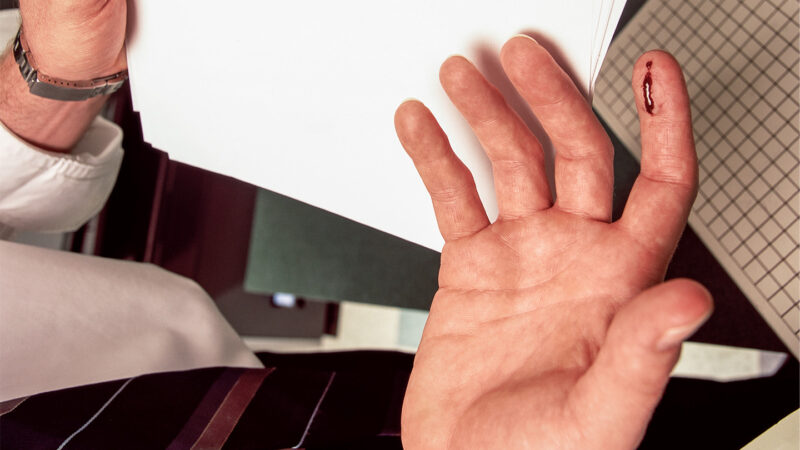Tiny as they are, paper cuts can cause real pain.
It’s common to get a minor cut while flipping through a magazine or book. But tissue paper is not likely to draw blood. Now, scientists have explained the physics behind why some paper is more likely to slice through skin.
Physicist Kaare Jensen was part of a team that set up experiments to study this. They used a gelatin replica of human tissue. Jensen works at the Technical University of Denmark in Kongens Lyngby. A thickness of around 65 micrometers (not quite 3 thousandths of an inch) was the sweet spot for paper cuts, they found. (Or you might call it the sore spot!) Their findings got posted June 19 in Physical Review E.
A thin sheet of paper wouldn’t cut; it would bend instead. Thicker paper made a dent in the gelatin but couldn’t break its surface. Like a dull knife blade, it couldn’t apply enough force over a small enough area of the material to pierce it.
The most treacherous paper tested was the kind used in old-fashioned dot matrix printers. Good news for fingers everywhere: That paper isn’t used much anymore. Magazine paper ranked a close second in the scientists’ tests.
The slicing angle also mattered. Pressing the paper’s edge straight down into the gelatin was less likely to cause a cut than if the paper’s path angled across and down.
Progress on the cutting edge
Next, the researchers put paper’s slicing powers to use. They designed a 3-D printed tool they call the Papermachete. Loaded with a strip of printer paper, the tool becomes a single-use knife. The paper blade can cut into cucumber, pepper and apple. It can even cut chicken. The tool could be a low-cost option for prepping some foods.
Next, the researchers plan to study more realistic, finger-shaped materials, rather than flat sheets of gelatin, says Jensen.
No human fingers were harmed in the making of the study. “Ideally, you would want some test subjects,” Jensen says. “But it’s hard to find volunteers.”




